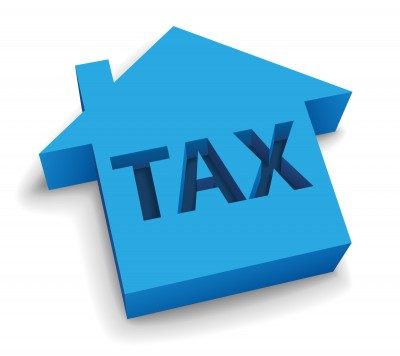
Buy-to-let Proprietors deadline for capital gains tax
Buy-to-let Proprietors and second-home owners could be required to pay capital gains tax within 30 days of selling their properties, under new rules being proposed by the government. Currently, people selling second homes or investment properties can postpone paying capital gains tax (CGT) until they file their tax return for that tax year, which could be more than 18 months after the property is sold. But draft legislation, originally announced in the 2015 Autumn Statement, will mean property investors will have just 30 days to pay up.
Which? explains the proposed changes and how they could affect Buy-to-let Proprietors.
What is capital gains tax?
Capital gains tax (CGT) is payable when you sell a valuable asset for a profit.
While you have an exemption if you’re selling your main home, you will face a CGT bill on the sale of a second home or buy-to-let – and property is charged at a higher rate than most other assets.
You can earn £11,700 (or £23,400 for couples who pool their allowances) before paying tax. Above this, basic-rate taxpayers have to pay 18% of any gain on property, and higher rate taxpayers pay 28%.
Any costs involved with buying and selling the property can be deducted when working out the gain, as can capital investments, such as building extensions.
By contrast, when investing in shares, bonds or funds, a lower 10% rate applies for basic-rate taxpayers, rising to 20% for in the higher or additional-rate tax bands. This rate also applies for personal possessions, though the method for calculating any gain is slightly different.
When do landlords pay CGT?
Under the current rules, Buy-to-let Proprietors must pay capital gains tax for property sales by 31 January after the end of the tax year, at the same time their self-assessment tax returns are due (for online filings).
So, if you sold an investment property in July 2018, it would be taxed within the 2018-19 tax year, and you could wait until 31 January 2020 to pay the bill.
But under the new rules, you’ll need to pay up within 30 days of the sale going through. For some landlords, this could move up their payment date by more than a year and a half.
Under the current system, the clock starts ticking when contracts are exchanged. But confusingly, under the new system, it would start once the sale has been completed.
Why are the changes being made?
Currently, there’s a discrepancy between the date when people who file tax returns need to pay their bills for income tax and when they pay capital gains tax.
Though the deadline for online tax returns is 31 January after the end of the tax year, self-assessment taxpayers need to make advance payments for income tax and national insurance, known as payments on account.
By contrast, CGT won’t be due until the final deadline, potentially meaning capital gains tax can be paid up to a year later than income taxes.
Other forms of tax on property, such as stamp duty, are also due within 30 days of the property sale being completed.
From the government’s perspective, the change would mean that HMRC will receive CGT receipts earlier.
But Buy-to-let Proprietors may feel the pinch in their cash flow. The move follows a number of other tax reforms that have pushed up bills for landlords, including the scaling back of mortgage interest relief, and the introduction of a stamp duty surcharge on buy-to-let and second homes.
When will the new rules come into effect?
The new rules have not yet been confirmed, as the draft legislation is currently passing through Parliament. If there are no changes to the policy, the bill could pass into law this summer.
The change was originally due to come into effect in April 2019, but the proposals have been delayed and are likely take effect for property disposals on or after 6 April 2020.
At this stage, there are no plans to change the deadline for other forms of CGT – though if the change is successful, it’s possible the deadline for paying CGT on shares, funds or other investments could be brought forward, too.
Buying a new buy-to-let?
If you’re hoping to get a mortgage on a buy-to-let property, a mortgage broker can help you find the right deal for your circumstances.
See details of our Guaranteed Rent Scheme here


If you have any comments, please email the author of this article and click on the link above